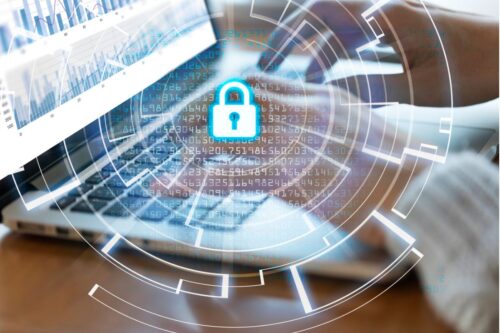Cybersecurity 101 Categories
What is a RADIUS authentication server?
A RADIUS (Remote Authentication Dial-In User Service) authentication server is a server that employs RADIUS protocol to manage network authentication. Developed by Livingston Enterprises Inc. in 1991, the RADIUS protocol enables centralized authentication, authorization, and account management for users connecting to a network service.
When a user attempts to log into the network, their credentials are transmitted to the RADIUS server. If the RADIUS server confirms these credentials as correct, the user is granted access to the network. The RADIUS server manages this process for multiple users and across numerous networks, centralizing the authentication process and maintaining security at scale. This server is particularly beneficial in large-scale organizations where hundreds or thousands of users might be connecting to the network, as it streamlines and standardizes the login process.
Beyond just authenticating users, a RADIUS server also has other functions. It is responsible for tracking users’ activities when they are logged into the network and logging their activity for future auditing. This information includes when and how long the user accessed the network, what kind of network connections they utilized, and the amount of data they transmitted or received during the session.
RADIUS servers can also communicate with other network devices like routers, switches, and other servers to relay or verify network access controls and permissions. This aids in implementing and enforcing the network’s policy consistently across all connected devices.
Moreover, by centralizing this authentication and account management, RADIUS servers offer additional network security measures. By offloading the responsibility of access control to a dedicated server, it reduces the chance for security lapses on individual network devices.
In summary, a RADIUS authentication server centralizes and manages network access, acting as a focal point for user authentication, activity tracking, and policy enforcement, which all contribute to better security in large-scale networks.
What are the advantages of a cloud-native RADIUS authentication server?
Cloud-native RADIUS (Remote Authentication Dial-In User Service) authentication servers provide numerous advantages that cater to today’s cloud-centric computing environment.
Firstly, a cloud-native RADIUS authentication server improves scalability. In a cloud-native setting, you can simply scale your resources up or down depending on the business need. This on-demand scalability eliminates the expense of purchasing and maintaining excessive resources, saving time and money.
Secondly, cloud-native RADIUS solutions offer greater reliability and high availability. Given that the cloud infrastructure is inherently designed for redundancy, it guarantees the system will remain available, even if a specific server or data center fails. This reduces the risk of downtime which is crucial for organizations in our today’s 24/7 operating environment.
Furthermore, they provide enhanced security. Cloud-native RADIUS servers implement strong authentication mechanisms, like two-factor or multi-factor authentication. They can offer a higher level of data protection, reduce the likelihood of unauthorized access, and are regularly updated to ensure robust security.
In addition, cloud-native RADIUS servers are often simpler to manage. Updates and patches are managed automatically, freeing your IT team from these time-consuming tasks. With the ability to access your RADIUS server from anywhere, it promotes remote management, giving administrators greater flexibility and convenience.
Lastly, cloud-native solutions can offer cost benefits as well. They operate under a pay-as-you-go model, meaning businesses only pay for the services they use, rather than having to invest in substantial hardware and related maintenance costs.
By implementing a cloud-native RADIUS server, organizations can benefit from the scale, resilience, security, ease of management, and cost-efficiency that this technology has to offer, making it a great solution for handling user authentication and network access control needs.
What’s the difference between a RADIUS authentication server and a TACACS+ server?
RADIUS (Remote Authentication Dial-In User Service) and TACACS+ (Terminal Access Controller Access-Control System Plus) are two main protocols used in Network Access Control (NAC). Both serve similar functions, acting as intermediaries between the client and server, relaying network information and enforcing policy, but they do so in significantly different ways.
RADIUS is a client-server protocol that uses UDP as transport. It encrypts only the password sent over the network, leaving the other information such as the username and the authorization data visible. The server and the client share a secret that’s used for the password encryption. It combines authentication and authorization in a single process. A drawback to this protocol is that you cannot differentiate the authentication phase from the authorization phase.
On the other hand, TACACS+ is a protocol developed by Cisco and uses TCP as the transport protocol. TACACS+ encrypts all session information, making it a more secure option than RADIUS. It allows for distinct and separate processes for authentication, authorization, and accounting. Unlike RADIUS, TACACS+ can create a separate and individual audit trail for each session, which can enhance monitoring and auditing capabilities.
Additionally, TACACS+ offers greater control over command authorization. It has the ability to limit certain users to specific commands, providing greater granularity for user permissions. This could be advantageous in situations where there’s a need for finer control over user accessibility and permissions.
In terms of performance, RADIUS servers usually have less network overhead because they operate over UDP. TACACS+, since it runs over TCP, ensures reliable delivery of packets, which might slow down its overall performance slightly but offers a reliable connection.
Overall, the decision to use RADIUS or TACACS+ largely depends on the specific needs and context of your network security requirements. Each protocol has its strengths and can be utilized to ensure secure, efficient network access control.
How does a RADIUS authentication server improve network security?
RADIUS plays a critical role in enhancing network security by providing a centralized system for authentication, authorization, and accounting (AAA) management for users who connect and utilize a network service. Essentially, a RADIUS authentication server acts as the intermediary between the user devices and the network system.
One of the significant benefits of RADIUS server is that it centralizes network authentication. In simple terms, instead of handling user credentials on a per-device basis, it compiles all of these details into one manageable location. It verifies a user’s identity before granting them access to a network, and if any anomalies are detected, access is denied. This step can deter potential attackers from accessing confidential data since it is far more difficult to infiltrate a system with this authentication system in place.
Further, the RADIUS server enhances security by incorporating the principle of ‘least privilege.’ In this process, a user is granted only the minimum access required to fulfill their job role, limiting their reach within the system. The purpose is to minimize the potential damage in the event that a user account is compromised. This further mitigates risks associated with insider threats or access misuse.
Another essential way RADIUS improves security is by providing robust tracking and logging of user activity on the network. Every action undertaken by users during a network session is recorded, creating a digital audit trail. This can be useful for investigating and responding to security incidents or even to fulfill compliance requirements.
RADIUS server can also be configured to integrate with advanced security measures like two-factor authentication or biometric authentication, enhancing the overall security framework. Also, since the credentials are stored centrally and communicated between the client and the server in an encrypted form, the chances of the data being intercepted are significantly reduced.
In summary, a RADIUS authentication server drastically improves network security by providing robust authentication, reducing the risk of unauthorized access, implementing the least privilege principle, and maintaining comprehensive logs for monitoring and audit purposes.



